Stay in the know on all smart updates of your favorite topics.
Are you interested in the experiences of others working in smart city projects and organizations? The Smart City Academy provides available knowledge about smart city projects and can help you with project development. This Smart City Academy page provides you with information and researches about the impact and conditions of smart city projects. Professors, teachers and students study the initiation, management, collaboration and scaling of smart city projects and would like to share these results with you. They do so by organizing events and masterclasses, by developing smart city tools and methodologies and by making research and outcomes accessible. You can find everything here. And the good news is.... You can add your knowledge too! Are you working on Smart City research? Please feel free to share your knowledge in the Academy section, under ‘Other research and theses’. The Smart City Academy is powered by the Amsterdam University of Applied Sciences. If you have any questions, you can contact smartcityacademy@hva.nl
Round Table – Smart City issues and experiences with collecting sensor data
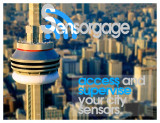
An open invitation to engineers, project managers, advisors and policy makers from regional cities with smart and sustainable initiatives. The round table talks will cover city sensor overview, and issues with collecting and aggregating sensor data. The benefits for the smart cities is that they will learn from the past experiences of their neighbours. The benefits for Sensorgage is the learnings we expect to extract so that we can best adapt our product to smart city needs.
Please contact me and I'll be happy to provide you with a Promotional Code for free access.
Smart buildings with IoT

What is the value of Smart Buildings with Internet of Things?
The choice for this national IT-Circle event’s theme Smart Building with IoT is not without a reason. Is IoT a hype or can it add value to owners, operators and users of buildings? What are challenges that need to be solved? Will smart buildings fit into the goal of providing healthy, safe, sustainable and pleasant working and living environments for the users? Will internet improve the buildings and the users?
During this informative national IoT event these questions – and many more – will be answered. The value of real-time data processing – and how to act on the data - will be presented. Next to that TU Delft will inform us about their Smart Building/Campus and we will have a look at the added value of LiFi. Obviously there will be time for questions and discussion during the sessions, the various breaks and lunch.
Sign up for the ICE IoT and learn more about Smart Buildings (use case), Smart Society (real time IoT data) and the use of IoT applications like LiFi.
NOTE: this event is for IT-CIRCLE MEMBERS ONLY. For more information about IT-Circle Nederland, see www.ITcircle-nederland.nl.
Amsterdamse première Green Tales of the City
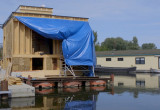
We hoeven nog niet aan de anti-depressiva als het gaat om het redden van onze planeet. De Nederlandse documentairemaker Gwen Jansen geeft in de film Green Tales Of The City een bijzonder filmisch inkijkje in de duurzaamheidsbeweging in ons land. Deze wordt in rap tempo krachtiger en omvangrijker.
De gemeente Amsterdam maakt onderdeel uit van een prachtige documentaire genaamd Green Tales in the City, www.green-tales.com, waarin duurzaamheid centraal staat, tezamen met vijf andere steden. Op 8 januari as. vindt de Amsterdamse première plaats van de film “Green Tales of the City”. Dat gebeurt in Pakhuis De Zwijger, hét onafhankelijk platform voor creatie en innovatie in de stad. Zowel de filmmaker Gwen Jansen als de wethouder duurzaamheid, Marieke van Doorninck zullen hierbij aanwezig zijn en beantwoorden na afloop vragen uit het publiek.
Achtergrond Green Tales of the City en profiel filmmaker Gwen Jansen
Green Tales in the City - een bioscoopdocumentaire waarin inspirerende 'groene verhalen' uit de stad centraal staan. Via deze documentaire wil Gwen Jansen mensen/landen/
steden/organisaties/gemeentes/provincies positief activeren en inspireren door het tonen van positieve voorbeelden van mensen die de leefbaarheid in hun eigen (snelgroeiende) stad proberen te vergroten door vooral met elkaar samen te werken en te kijken naar gemeenschappelijke belangen. Samenwerking zoeken staat daarbij centraal.
Gwen Jansen is een onafhankelijke filmmaker. Meer informatie over de documentaire Green Tales of the City is te vinden online. De andere deelnemende steden zijn Leeuwarden, Rotterdam, Enschede, Nijmegen en Utrecht. De film wordt aangeboden aan ambassades en consulaten, filmfestivals, bioscopen en tv zenders internationaal en nationaal.
Als kijker volg je in verschillende steden van binnenuit de verhalen van een aantal buitengewoon bevlogen en gedreven mensen die allen grootse, vernieuwende projecten zijn gestart om zoveel mogelijk andere Nederlanders positief te activeren om milieubewuster te gaan leven. We zien 'on the job' hoe ze dit proberen te doen, welke samenwerkingen ze opzoeken en voor welke grote uitdagingen ze soms komen te staan. Ze zijn vastberaden om de leefbaarheid in hun stad in Nederland te vergroten op het vlak van bijv. luchtkwaliteit, veerkracht/adaptatievermogen van de stad/diversiteit/creativiteit/openheid van de stad. Hoe lastig soms ook. Zal het hen lukken om te slagen om op tijd zoveel mogelijk andere mensen te activeren?
Maar we zien ook de andere kant van het verhaal. We maken kennis met de diverse beweegredenen en het gevoel van mensen die (nog) niet optimaal milieubewust leven. Inclusief die van de filmmaakster zelf. En hoe reageren dezelfde mensen als ze een week lang uiteenlopende tools hebben gekregen om duurzamer te leven?
Workshop ‘Samen werken aan schone lucht in Amsterdam’
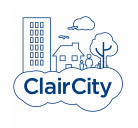
Wilt u een schonere lucht in Amsterdam en tegelijk een fijnere en betere leefomgeving bij u in de buurt? Heeft u ideeën over hoe dat zou kunnen of moeten?
Dan willen wij u graag uitnodigen voor de bijeenkomst ‘Samen werken aan maatregelen voor schone lucht en een fijnere leefomgeving in Amsterdam’, die wij op 23 januari organiseren in het kader van het Europese luchtkwaliteit onderzoeksproject ClairCity (http://claircity.eu/).
Vanuit je ervaring als Amsterdammer (geen voorbereiding of specifieke kennis nodig) vragen we om in discussie te gaan over concrete maatregelen voor schone lucht. Hoe streng moeten die maatregelen zijn? En wanneer zouden ze in moeten gaan? Samen met de andere deelnemers maakt u scenario’s voor een fijnere stad.
De workshop is gratis. Inschrijven kan door een mail te sturen naar claircity@trinomics.eu of te bellen naar 010 341 4592). Er is een beperkt aantal beschikbare plaatsen, schrijft u zich daarom zo snel mogelijk in.
Kom en plant je kerstboom in het Tijdelijke Kerstbomenbos in Amsterdam Noord!
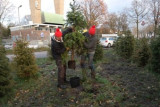
In het weekend van 5 en 6 januari kunnen aan de Sixhavenweg in Amsterdam Noord goede gezonde bomen met kluit (weer terug) de grond in, in het Tijdelijk Kerstbomenbos. Van 11.00 tot 17.00 staan mensen klaar met scheppen om planters bij te staan. Vorig jaar was het voor het eerst op die plek, een feestelijke afsluiting van de kerstvakantie. Dit jaar is het al bijna een traditie.
Maar wat nou als je een boom had gekocht die maar éénmalig is? Afgehakt of met een zielige kluit? Moet die dan bij het grof vuil? Liever niet en het hoeft ook niet. Het Tijdelijk Kerstbomenbos werkt dit jaar samen met Urban Street Forest, waardoor iedereen het leven door kan geven en een levende boom kan planten.
Hoe gaat dat in zijn werk?
Urban Street Forest maakt zich hard voor het planten van bomen op plekken in de wereld waar bomen hard nodig zijn. Voor elke boom die via hun projecten in de stad geplant wordt, wordt ergens anders op de wereld óók een boom geplant. Een spar, of een andere boom. Maar net wat goed past op die plek. Bijvoorbeeld in Spanje, waar bomen droge en dorre gebieden weer leefbaar maken. Door de samenwerking gaat er voor elke boom die in het kerstbomenbos geplant wordt nóg een boom de grond in, die daar de rest van zijn leven kan blijven staan. Zo geeft je kerstboom het leven door. Maar ook een dode kerstboom kan tijdens de plantdagen het leven doorgeven: in het Kerstbomenbos staat op de dagen een takkenversnipperaar en daar kan je dode boom verwerkt worden tot mulch, voeding voor de grond.
Door één euro te betalen wordt voor je dode kerstboom door Urban Street Forest in één van hun projecten een boom geplant en mag je een emmer mulch onder de bomen uitstrooien. Zelfs als je helemaal geen boom hebt, en je komt alleen maar kijken kan je zo een boom planten.
Kom met je boom en laat hem keuren door de boswachter
Weet je niet zeker of je boom dood is of nog kans op overleven heeft? Heb je een boom gevonden op straat? Kom met je boom naar het Tijdelijk Kerstbomenbos en de boswachter vertelt het je. Als je boom is goedgekeurd, kan je ter plekke een pot en penning kopen, waarmee je je boom kan planten en terugvinden. Er is dit jaar plek voor 400 bomen en vol = vol, vandaar dat alleen vitale bomen een kans krijgen.
Boombewijs
Iedereen die meedoet aan deze actie, door zijn boom in het bos te planten of te laten versnipperen, krijgt van Urban Street Forest een ‘boombewijs’.
Data:
5 & 6 januari, 2019
Locatie: Sixhavenstraat, Amsterdam-Noord
Kosten:
- Planten van je kerstboom: 10,-
- Versnipperen van je kerstboom: 1,-
City-zen Fuck-up Night, geleerde lessen #3: Aan ons enthousiasme zal het niet liggen
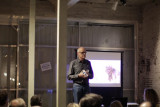
– aan onze naïviteit wel... Waternet houdt zich bezig met alles wat met water te maken heeft in Amsterdam. Afgelopen jaren komt steeds meer de nadruk op duurzaamheid te liggen en welke rol water daarin kan spelen. “Wij startten eigenlijk 5 jaar geleden al met duurzame initiatieven” zegt strategisch adviseur Otto Reinstra. Voor twee veelbelovende projecten – koude uit drinkwaterleidingen en warmte uit afvalwater – werd subsidie aangevraagd onder het EU-programma City-zen.
Koude uit drinkwater – groot, groter, grootst
Het project werd gestart met als partner een vliegveld inclusief hotels en kantoren. Zo’n gebied heeft een grote vraag naar koude. En leidingen die langs het vliegveld lopen hebben veel koude potentie. Het hele vliegveld kan door deze koude van koeling voorzien worden. Zowel Waternet als het vliegveld waren erg enthousiast. Dat mocht alleen niet heel lang duren….
Voor de problemen die op ons pad kwamen, werd steeds enthousiast gezocht naar oplossingen vanuit Waternet. Maar het gezamenlijke duurzame doel verloren we tegelijkertijd langzaam uit het oog en geld, planning werden de standaard. En toen klapte het.
Nieuwe sanitatie op een onbewoond eiland
Het tweede project ‘warmte uit afvalwater’ werd opgestart. Het project dat zich hier uitstekend voor leende: een nieuwbouwproject van de gemeente waarbij een eiland opgespoten zou worden voor 1500 woningen. Waternet dacht daar enthousiast over mee. De nieuwbouwwoningen op het eiland zouden worden aangesloten en van warmte worden voorzien vanuit de warmte van grijs afvalwater. “We waren erg enthousiast over het mooie veelbelovende energieproject, die echt een bijdrage kon leveren. Achteraf kun je stellen dat die houding vooral naïef was”.
Het nieuwbouwproject is bedacht in tijden van de economische crisis. En dan is in 2014, de crisis was patsboem voorbij. “De gemeente heeft op gebiedsontwikkeling een grote uitdaging; binnen 10 jaar moeten 50.000 woningen gebouwd worden. In zo’n stad komt dan een goed gestroomlijnd gemeentelijk apparaat op gang, waarbij in snel tempo plannen uit 2008 worden gemoderniseerd. Voor we het wisten, waren aanbestedingen de deur uit en ging alles lopen. Gevolg: wij waren te laat. Een brief naar de wethouder waarbij de oorspronkelijke plannen werden herhaald mocht niet baten en werd ons ook niet in dank afgenomen. Resultaat: we stonden aan de zijlijn.”
Zonder harde afspraken heb je niks aan goede bedoelingen
Uiteindelijk stopte het project ‘koude uit leidingwater’ met het vliegveld en konden we het drinkwater project gelukkig uitvoeren met een farmaceutische fabriek – en met succes! Dezelfde vraag, maar een kleinere schaal.
Voor nieuwe sanitatie kwam, naast de geleden teleurstellingen, een ander nieuwbouwproject voorbij. Een initiatief van 20 partijen en bewoners. Een manifest werd ondertekend om een circulaire stadswijk te maken. Een samenwerking tussen gemeente, netwerkbedrijven, woningcorporaties, architecten, bewoners. Voordat de samenwerking werd gestart, waren echter alweer verschillende beslissingen genomen en stond Waternet wederom aan de zijlijn. “Zonder harde afspraken heb je niks aan goede bedoelingen.”
De samenwerking met een woningcoöperatie bleef over, in totaal 800 woningen. Ook hierin bleek dat in de praktijk andere prioriteiten de bovenhand voerde waar Waternet geen partij in was. Onder aan de streep: 300 woningen en wachten we met smart op de installatie hiervan. Die helaas alleen de functie om grondstoffen te winnen uit afvalwater gaat uitvoeren. Koude werd uiteindelijk ook geschrapt…..
Er is een aantal belangrijke lessons learned te trekken – zeker voor een partij als Waternet die innovaties nog niet in het DNA heeft zitten:
- Enthousiasme is goed, maar het vertrouwen in partners is niet altijd wederzijds. Maak heldere afspraken over doelstellingen, taken en verantwoordelijkheden!
- Zorg dat je beide enthousiast blijft door regelmatig met elkaar te overleggen en het met elkaar eens te blijven over doelstellingen.
- We hadden de (economische) ontwikkelingen kunnen voorzien en moeten meenemen in de ontwikkeling van de projecten.
- Veel wisselingen van de wacht, andere directeuren en managers, komen het project niet ten goede.
- Doordat we met City-zen subsidie zijn gestart zetten we dit project ook door, in andere situatie zou je waarschijnlijk eerder de handdoek in de ring hebben gegooid.
- Blijf doorzetten en blijf optimistisch! Ook door ruzie en gedoe eromheen kom je toch weer met medestanders in contact en doen nieuwe mogelijkheden zich voor.
De volgende Fuckup-Night is tijdens de City-zen Days 1-3 April ’19.
Lees hier:
Geleerde Lessen Deel 1: Klimaatneutraal begint bij bewoners, maar ze gaven niet thuis
Geleerde Lessen Deel 2: Innoveren binnen de Gevestigde Orde
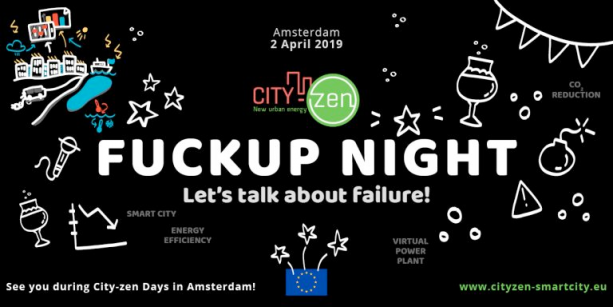
Coworking Smart City
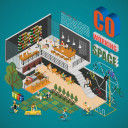
This year is the 10th anniversary of my decision to devote myself to the creation of the models of social changes. After banging my head against the wall, trying to scale the default coworking business model, I realized that only city-wide catalyst models such as smart city can survive and are ones of the pillars of the future of coworking business as well as cities itself.
It took some time when I tried to persuade the atomized community of small coworking owners that our model will not sustain and will probably end up very, very soon, but they didn’t want to listen. Next year, the network of publicly financed spaces turned up into business, disrupting the co-working space in every major city.
It was 2011, but of course, it was yet not what is coming now, when the main international networks are opening a multitude of huge spaces in the capital cities, using deep pockets of VC bankers and property managers and owners.
Warm, organic community growth generated by its leaders — it’s time to say goodbye. The future is in large corporate global coworking behemots.
Well, I foresighted that too. But in fact, the problem of coworking and the growth of these amazing communities (in Poland) lay somewhere else, than a lot of people think, and I hope I’m right on this. Poland is brain-drained, and the number of freelancers and creatives on the market is not growing, but even decreasing!
The problem can stand like this: how to encourage the average tee drinking person (from outside of creative industries) to fill all of the new transformed places? In other words: how to make people learn and become creative for the purpose of office rental to grow?
Introducing serious gaming can be one of the solutions. In Poland, we developed a complex model of how to get secondary schools and technical schools’ students on board of smart city and into the creative industry but it’s for another story.
In some cities, the important issue is how to not rent buildings to corporate employees, but how to use the growing number of freelancers, digital nomads and creative industries to fill new floors in new, sophisticated buildings and even neighborhoods.
We need to rethink that on a big scale. What you do not see in the small business sheet, is what large operators see. And they are making the impact right now.
The revolution will soon come over how the city is treated, used and perceived. For more and more people, city spaces become a meeting platform where they share time for creative activities with other people. As a reminder, for most of us, city streets are still the means of the fastest transfer between work and home and visiting many strange offices in order to get along with life in the so-called society. But this era is going to the end according to Toffler theory of The Third Wave. (and many others).
Reality changes quickly and aims to transform most experiences according to new paradigms and new reality. When we talk, new technologies “eat” workplaces and administrative bodies one by one. The new reality is about convergence, experience, sensitivity to all activities related to science and useful society or urban activities.
Step by step, engaging people in new social models such as coworking, as well as smart city, we as frontier innovators introduce expectations to a whole new level for the citizens. And imagine how competitive the city will be, after being completely reorganized to facilitate the coworking culture in its all places and spaces. The new intelligent digital layer of the social city will finally emanate in different forms.
The most important coworking values: community, cooperation, openness can be a great foundation for building other smart city solutions on it.
At this point, I really want to encourage the coworking and startup community to cooperate with municipal offices to facilitate and promote new socio-economic models, such as cooperation platforms, sharing economy and social entrepreneurship.
Why it’s so important?
In July 2011, Mitsui Fudosan announced its new concept, Kashiwa-no-ha Smart City, based on three pillars: environment symbiosis, health and longevity, and creation of new industry.
Gate Square, which serves as the center of the smart city and brings together offices, residences, retail space, a hotel, and academic facilities, encourages interaction among the residents of the area, as well as those who commute to the city to work. (@Mitsui Fudosan Co., Ltd. )
The city’s perspective offers access to all taxpayers, and all this means that communication takes place in all urban social groups. At the same time, there is no way for city administration by themselves to adapt to the new disruptive innovation in enough fast pace because of the development opportunities have always will be stalled in administrative and budgetary never-ending processes.
The line of cooperation between city halls and coworking and startups must be marked. If they all have an impact, cities can grow well and live fully. But what exactly is a smart city? it is about citizens in all aspects of their lives and development using the latest technological advances, as well as methods for integrating and empowering people to take the driver seat in cities.
So what concerned me and what I’m talking about in the Smart City Podcast is that if, in fact, startups offering services to their citizens are often placed in coworking. So I assumed what the future role of this community for the city might be of great importance. Recognizing the positive effect of gathering creative people in post-industrial districts in order to revitalize it gives me hope that the urban strategy will eventually include a systematic approach to support and benefits for local communities.
But it is not what always happens. In most cases the positive effect of this coalition is consumed by private business not the city itself.
There is still a clash between the old-fashioned archaic hierarchy and the partial approach to city management, and new grassroots impulses. The new urbanists concepts are about driving development through the combination of ideas, products that enable the crowd’s wisdom in creating the city. So-called smart city 3.0 approach. But what cannot be combined in an old paradigm with only an improvement called sometimes “creative” or “smart” can be combined into a completely new model of an intelligent city, and ultimately it will replace those catching up and still converting cities.
What is to come is, of course, standardized as a framework for programming applications for “i-stores” and “app markets” for city creators and visionaries. It is not possible to maintain the basic needs of citizens’ tools based on a certain form of capitalist/market-oriented intermediary operating from the sky and oceans. Everything will be brought to local clouds and as close as it can be to the community of people adopting these independent standards, these standards will be introduced at the EU level or at the global level.
The re-orientation of the use of common communication / technology platforms and the emergence of new interfaces will also be achieved thanks to new data transfer standards (such 5G) and a fundamental change of the current system’s pillars, such as financial transactions (Fintech), as well as fluid law enforcement and liquidity through blockchain, as well as distributed and reliable databases.
Imagine what will happen if all applications are just a larger complex system that will allow cities to do just better. And I do not want to issue a label — or a brand for it (if I may i’ll name it City2.0neOS) Certainly the aggregation and the process of setting standards for cities can be a process that will end with a completely new ecosystem for innovation and unveiling our living to the fullest, and this is what it is all about.
SpaceOS is a smart technology, creating smart buildings and smart offices by letting workspaces turn the physical spaces into digital assets.
So in my opinion, a new model of cities based on a foundation of Open Source idea (Github and Linux are the greater examples) will be created. It will be standing on the values that create a coworking movement, and this model will be a combination of well-known solutions and applications in a standardized interurban form that will be developed by the community for its own purposes and best interests. And what’s best this movement is vibrant and alive and it’s happening all over the world. I hope in my best will that in the best solution and it is unstoppable and impossible to reverse.
Write to me if you want to learn more about the idea of a coworking city!
Looking for innovative and impactful IT solutions for public administrations
Do you want to become the next public sector digital champion? Submit your solution for the World Sharing and Reuse Awards by 28 February 2019!
On 29 November, Mariya Gabriel, the Commissioner for Digital Economy and Society officially launched the Sharing & Reuse Awards 2019. The contest will highlight the most innovative and impactful IT solutions for public administrations (both open source software and IT shared services).
The prizes that can be won are € 15 000 for the first team and € 10 000 for the runner-up in each of these 4 categories:
Most innovative open source software
Open source software with the biggest impact on citizens or businesses
Most innovative shared IT services (commonly developed or shared)
Shared IT services (commonly developed or shared) with the biggest impact on citizens or businesses
The Sharing and Reuse Awards will take place on 29 June, 2019 in Bucharest, Romania. If you would like to become a contestant in the awards, you can submit your solution before 28 February 2019.
Read more and propose your solution here: https://joinup.ec.europa.eu/collection/sharing-and-reuse-it-solutions/sharing-reuse-awards-2019
Entrepreneurship College – SDG edition: SDG 11 - Sustainable Cities and Communities
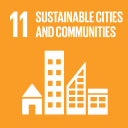
The Amsterdam University of Applied Sciences, together with Royal Tropical Institute (KIT) hosts Entrepreneurship College – SDG edition. This monthly series of lectures discusses the ins and outs of each Sustainable Development Goal from an academic point of view, and discusses how innovation and entrepreneurship can contribute to reaching the goals. We would like to invite you to our event next month, where Willem van Winden gives us an introduction to SDG 11: Sustainable Cities and Communities. How can we reach the 2030 agenda of the UN? He will demonstrate this with clear local and international cases before going in to the question: how does entrepreneurship and innovation contribute to these developments?
Learn more about the SDGs, innovative solutions and join us!
When? 10th of January from 17.30 till 19.00
Where? Mauritskade 64 (Café de Tropen)
M-Health Congress 2019
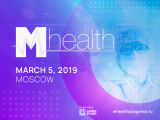
On March 5, 2019, the fifth M-Health Congress will take place – the annual event organized by Smile-Expo, dedicated to innovations in medicine and healthcare.
The event will also include an exhibition area, where attendees will have a chance to ask questions to producers of medical devices and software, and test products. Exhibits will embrace cloud services for medical facilities, devices for remote monitoring of health state, and many other things.
Specifically, the congress will be useful for:
• representatives of state medical facilities;
• practitioners;
• owners of private clinics;
• investors;
• mHealth startups;
• developers of medical software, devices, and other representatives of the digital medicine market.
Future of Mobility Hackathon in Riga Letland georganiseerd door de Nederlandse Ambassade

In 2018 had de Nederlandse Ambassade in Riga (LV) de eer om het staatsbezoek van Zijne Majesteit de Koning Willem-Alexander aan Letland te organiseren. Als vervolg op het staatsbezoek organiseert de Nederlandse Ambassade in Letland een hackathon getiteld: “The Future of Mobility – Get Connected! Smart Mobility and Sustainable Logistics” op 19-21 februari 2019 in Riga. Het evenement zal de economische relatie tussen Nederland en Letland bevorderen en kansen bieden voor innovatie, alsook de startups aantrekken van de sectoren transport, logistiek en mobiliteit.
Gedurende 48 uur zal 100 tal deelnemers (in teams bestaande uit minimaal 3 en maximaal 5 personen) uit het bedrijfsleven en de publieke sector aan duurzame en innovatieve oplossingen werken. De vier thema’s zijn Altertnative Mobility, Navigation and Innovative Use of Traffic Data, Smart Urban Logistics, Mobility as a Service. Ze zullen dit doen aan de hand van Nederlandse en Letse challenges, gebruikmakend van databases uit beide landen. Onze partners voor dit evenement zijn hackathon orhanisatoren Garage48 en de Letse grootste telecommunicatiebedrijf Latvijas Mobilais Telefons (LMT). De hackathon zal plaatsvinden in het hoofdkwartier van LMT. Tegelijktijdig vindt het drukbezochte regionale start up tech evenement TechChill plaats, en de winnaars zullen de prijzen op het TechChill-podium in ontvangst nemen.
Als organisator is de ambassade op zoek naar bedrijven die geïnteresseerd zijn in sponsoring en participatie. Het sponsoren van dit evenement biedt uw bedrijf de uitgelezen kans om met experts uit beide landen te werken aan innovatieve en vooruitstrevende oplossingen op het gebied van Smart Mobility en Sustainable Logistics. Als sponsor kunt u bovendien eigen challenge aandragen gerelateerd aan de hoofd thema’s. De ambassade verwelkomt Nederlandse deelnemers uit zowel het bedrijfsleven, start-ups, de academische wereld en de publieke sector. Deelname aan het evenement is gratis voor Nederlandse deelnemers (u ontvangt een 100% kortingscode).
Voor meer informatie kunt u terecht bij Indra Freiberga, de Senior Economic Officer. @: indra.freiberga@minbuza.nl
T: 00371 29434242
Informatie: https://www.facebook.com/events/309420533243833
Aanmelden via: https://www.eventbrite.com/e/garage48-future-of-mobility-tickets-53135503722
Anthropocene & Age of Consumption

The Anthropocene started as a proposed geological epoch but it has quickly developed into an existential planetary challenge beyond the preservation of our biosphere by representing disruption and convergence of planetary life support systems with the technological, economic, cultural and psychological limits of human existence.
"Anthropocene" or "Capitalocene"? How can the consumerist basis and perpetual growth requirement of present macro-economic system be addressed? Are there any alternative social innovations challenging this age of consumption?
Those and other questions will be discussed at our participatory debate.
* Registration and tickets by email to amsterdam.global.forum@gmail.com mentioning your professional/educational background and topics of interest if you are a new participant.
* Places are limited.
* Participant Entrance €6
* Location in Amsterdam will be confirmed to registered participants by email invitation.
Amsterdam Global Forum: Be part of a community focused on social transformation and innovation for more inclusive, resilient and sustainable societies.
Mayor Franc Weerwind about the Digital Transformation of Cities
On December 4, the Mayors of over 40 cities were invited at the Committee of the Regions in Brussels to discuss the digital transformation. They are all part of the Digital Cities Challenge, an initiative of the European Commission to help European cities develop and implement policies that focus on smart, sustainable growth through the uptake of advanced technologies by local stakeholders, through building up local innovation ecosystems. The Amsterdam Metropolitan Area is one of the 6 Mentor Cities of this challenge, based on the region’s track record in the digital economy and the application of digital, data and smart cities innovations.
Mayor Franc Weerwind of Almere, also Amsterdam Economic Board Member responsible for Digital Connectivity shared his vision and principles. Weerwind’s key message to his fellow cities and region is cooperation outside the beaten tracks: breaking silos within municipalities, but also cooperation between government, knowledge & education institutes and the regional business sector.
“The digital city is a citizen-driven, inclusive and green city – it is not driven by technological progress, but by the demand and needs of our citizens,” Mayor Weerwind said. “We as Mayors can use the power of digital transformation itself to get things done by linking the right skills, knowledge and organisations together.”
Read Mayor Weerwind’s full speech with links to further information about the activities in the Amsterdam Metropolitan Area via the link below.
City-zen Fuck-up Night #1 | Klimaatneutraal worden begint bij de bewoners – maar ze gaven niet thuis
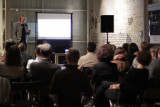
De City-zen Fuck-up Night in Antwerpen was een avond waarin falen gevierd werd. In het verlengde daarvan lanceren we een serie van drie verhalen over de geleerde lessen bij het maken van fouten. Lees, huiver en doe er je voordeel mee; fouten die je niet meer hoeft te maken 🙂
Klimaatneutraal begint bij de bewoners thuis – maar ze gaven niet thuis
Geert Vanhorebeek houdt zich bezig met het programma ‘Leuven klimaatneutraal in 2030’. Met als doel Leuven bewust te maken: minder uitstoot en duurzamer gedrag. Het doel was een collectief renovatieproject op te starten: buurten informeren, bewoners stimuleren om duurzame energiemaatregelen te nemen. Maar ook schaalvoordeel behalen; zoveel mogelijk inwoners bereiken. In totaal waren acht potentiële homogene wijken geïnventariseerd voor het betreffende project.
Het proces in 5 quotes…
#1
“Uiteindelijk hebben we twee homogene wijken op ons onderbuikgevoel uitgekozen. In deze wijken hebben we goed uitgepakt, onder andere met een mobiel energieloket en renovatiebegeleiders. Maar wat bleek; in de homogene wijk was geen sprake meer van gelijke woningen. Een groot gedeelte van de woningen was allang weer verbouwd. Zo zie je dat de praktijk vaak anders uitwijst dat de theorie.”
#2
“In totaal waren 9 van de 60 woningen eigendom van een woningcoöperatie. Wij vonden het niet meer dan logisch dat de coöperatie het goede voorbeeld zou geven, zodat we één goed voorbeeld hadden om anderen te overtuigen. Simpel; dit kwam niet van de grond.”
#3
“Bij een volgend initiatief gingen we langs de deuren. Toen kwamen we erachter dat er óf oude mensen woonden óf families die al met verbouwen bezig waren. We kwamen op het verkeerde moment; ons initiatief sloot niet aan bij de levensfases van deze bewoners.”
#4
“In de enquête – om te achterhalen waar de meeste draagvlak en kansen zouden liggen en om de bereidheid om mee te doen te toetsen – bleek draagvlak, maar dat viel in de praktijk tegen. Daarnaast hadden we te maken met een “slaapwijk”, één waar weinig dynamiek in zat. Geen wijkevenementen, geen sociale cohesie en daardoor weinig succes voor ambassadeurs.”
#5
“In de tussentijd waren we ook betrokken bij een nieuw EU-voorstel (Horizon2020). Doordat dit veel tijd en toewijding vroeg, hadden we op cruciale momenten weinig of geen aandacht voor dit project en hebben we kansen gemist.”
Dus…, van de initiële ambities kwam in de praktijk weinig terecht. De ‘Lessons Learned’ zijn:
- Vraag je samenwerkingspartners naar hun doelstellingen, verwachtingen en leg afspraken vast. Zorg dat het voor iedereen interessant blijft om zo de eindstreep te behalen.
- De wijk moet een mate van wijkwerking/cohesie hebben waarbij de buurt elkaar enthousiasmeert en je kunt werken met ambassadeurs.
- De wijk moet voldoende groot zijn om zo schaalvoordeel te behalen.
- Blijf aandacht houden voor het project.
“We gaan het met deze ervaringen de volgende keer veel beter doen!”, aldus Geert Vanhorebeek.
De volgende Fuckup-Night is tijdens de City-zen Days 1-3 April ’19.
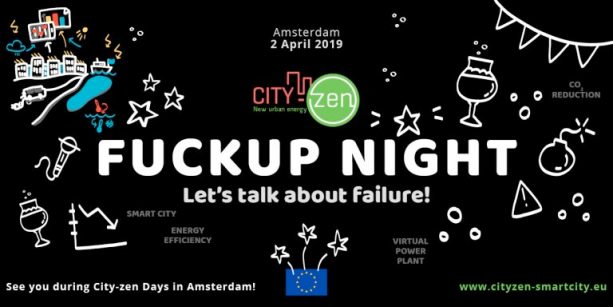
Meer informatie over de City-zen Days: <https://amsterdamsmartcity.com/events/save-the-date--city-zen-days-from-18-to-20-march>
Lees hier:
Geleerde Lessen Deel 2: Innoveren binnen de Gevestigde Orde
Geleerde Lessen Deel 3: Aan ons enthousiasme zal het niet liggen
Een aardgasvrije stad - Informatiebijeenkomst
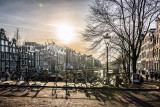
De winter staat weer voor deur! De temperatuur daalt fors, de mutsen en handschoenen worden tevoorschijn gehaald en de verwarming gaat omhoog. Maar hoe verwarmen we onze huizen eigenlijk zonder aardgas? En wat zijn de alternatieven?
Op 12 december organiseert de Gemeente Amsterdam een stadsbrede informatiebijeenkomst over een aardgasvrije stad. Alle Amsterdammers die meer willen weten over wat een aardgasvrije stad betekent voor hun woning zijn welkom om deel te nemen aan deze avond.
Interactieve avond
Tijdens deze avond kunt u deelnemen aan themasessies. U kunt zich laten inspireren door buurtbewoners of u kunt leren wat de no-regret maatregelen zijn in uw woning ter voorbereiding op de aardgasvrijtransitie. Er wordt ook een themasessie georganiseerd waarin we de technische mogelijkheden naast elkaar zetten en er is een themasessie speciaal voor huurders en wat de aardgastransitie voor hen betekent.
Architecture Now #11: Connected Architecture

Data as a design tool: smart minds on how to create smart cities.
In times of unprecedented technological change - think of Big Data and the Internet of Things (IoT) - every building and designed public space is a potential generator and transmitter of data. This allows architects and designers to create innovative “connected” projects to improve the quality of life within our (smart) cities. This evening we explore the impact of connected architecture and infrastructure together with engineers, architects, and urban adventurers. How can we use connected space to create happier, more sustainable places? How can we involve inhabitants and the municipality to maximize the impact of the IoT? An inspiring evening on tech, design, ethics and making better places.
MX3D – Smart Bridge
The world’s first steel bridge, 3D printed by robots, will soon span a canal in the centre of Amsterdam. This ground-breaking project is an initiative of the Dutch start-up MX3D and the brainchild of designer Joris Laarman. They have teamed up with a consortium of mathematicians and IoT specialists to develop a smart sensor network to monitor the bridge’s health in real time. These sensors will measure environmental factors (air quality, temperature), enabling engineers to measure and monitor the bridge’s health. The project illustrates the speed with which this new technology and possible applications are developing. What challenges did the face, creating the smart bridge? And what specific data will it generate? Gijs van der Velden & Alec Shuldiner share their insights.
Heren 5 – Het Fundahuis
Every month Funda, the largest house site in the Netherlands, has over 4 million unique visitors. The interaction of all those visitors ensures big data. Can you design a house based on that data? Heren 5 took up the challenge together with Dingeman Deijs Architects. The data from Funda shows that the Netherlands is looking for villas and castles, but that terraced houses are the most sold homes. The tension between dream and reality has been the starting point for the design of the Funda Huis. They look like two extremes, the typical Dutch terraced house and the large free-standing bastion, but they are more compatible than you might think. Jeroen Atteveld presents their designproces.
Begin 2018, the BNA initiated the design study ‘The city of the future‘, that looks at new ways of area development. Ten multidisciplinary design teams were involved in intensive design studies at test locations in cities such as Amsterdam, Rotterdam and Eindhoven. Together with designers and municipalities they aimed to answer the question: how we can link construction tasks to energy transition, innovations in transport, circular economy and other system-and network innovations in times of the next compaction wave? BNA-director Fred Schoorl explains the results and Bram van Ooijen and Bart Mispelblom Beyer, team members of Team Triangel, present their experiences within the project.
DATAstudio
DATAstudio is a program within Eindhoven in which available data and technological possibilities are combined with the reality of the street and the needs of the residents. What can the ‘smart city’ mean for living together in a neighbourhood? And (how) can technology help to promote citizen participation? Linda Vlassenrood shares their experiences and insights. What were the most important lessons learned?
Tada
In rapidly digitising cities, ethical and responsible use of data is a major challenge. As is the case in Amsterdam. Professionals from the Amsterdam region therefore wrote the manifesto ‘Tada – data disclosed’ which contains values that, according to the founders, should be valid in responsible digital cities. Douwe Schmidt talks about the promises of data and new technologies for urban challenges. How do we combine optimism and alertness?
With amongst others:
Gijs van der Velden | Cofounder of MX3D en General Manager of Joris Laarman Studio
Ger Baron | Chief Technology Officer, City of Amsterdam
Alec Shuldiner | Sr. Product Manager, Analytics & Information Architecture at Autodesk
Linda Vlassenrood | Program Director International New Town Institute / Program Manager Het Nieuwe Instituut
Jeroen Atteveld | Heren 5 architecten
Fred Schoorl | Directeur BNA
Mira Brethouwer | Arcadis design & consultancy
Bram van Ooijen | Stedenbouwkundige MUST
Bart Mispelblom Beyer | Tangram Architecten
Douwe Schmidt | Campagne strateeg Tada
This event will be in English.
We Proudly Present Our Partners: Part #11 Kennisland
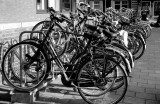
In June we kicked off a new phase of Amsterdam Smart City. More partners than ever are pooling their networks, knowledge and skills. Who are they? We will present some of them one by one. Kennisland: 'Experimenting with new interventions and solutions for the city by tackling urban problems.'
What is the main reason for you to join the open collective Amsterdam Smart City?
The Amsterdam Smart City collective forms a strong power to tackle complex urban and regional issues. Kennisland joined the collective to help make sure that the transitions taking shape in the fields of mobility, digitisation and energy are fair, inclusive and transparent.
What is your ambition for the city and the Amsterdam Metropolitan Area?
Kennisland is working to create an inclusive city and to investigate new ways of involving all the experience and creativity present in the city and beyond.
What do you think is the biggest challenge for the city and the region in the future?
In recent years, many government responsibilities have been moved from the national to the local level. This means that municipalities have new tasks, and that a great deal of policy is now developed and implemented in an urban context and therefore closer to (and preferably in interaction with) citizens. We have observed that many municipalities are struggling with this – how should these duties be realised in practice, and how can citizens be involved in this process?
How do you see the role of the residents and citizens in your plans?
Kennisland is experimenting with new interventions and solutions for the city by understanding and tackling urban problems at the local level, based on the stories and experiences of those directly involved. As such, the stories and needs of all city residents play a key role in our work. Everyone can and must contribute to the discussion and work together to ensure that the city remains a place for everyone in the future.
What do you hope to work on in the upcoming years?
We hope to work on alternative ways of organising the city. We ask ourselves which type of governance will produce a city that is open, inclusive and successful. Which role can governments, citizens, community initiatives and businesses play in this? How can we ensure that all residents benefit from the wealth of opportunities offered in the city?
Smart grid: in need for digital and social inovation
The development of smart grids illustrates the contribution of (digital) technology to the process of energy transition. At the same time, the involvement of the local community turns out to be mandatory. Why? In my newest blog post, I elaborate on the role of social innovations like energy cooperations.
For those who prefer reading n Dutch; the same post can be read here: https://wp.me/p32hqY-1Ht
De KasKantine
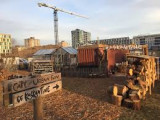
The KasKantine is a small, transportable, ecovillage in the city, currently buildin up on its fourth location in the West of Amsterdam, completely made with DoItYourSelf technology and mostly with natural and waste materials. Still it has hold a liquor permit and a restaurant that can host up to 150 guests. Furthermore a mobile aquaponic system, rain water filter and waste water filter, 30 solar panels and 13 shipping containers accommodating social initiatives and ecological entrepreneurs.
The Black Box Bellagio

Welcome to the Black Box Bellagio - an unusual casino that won’t take your money, but is after your freedom, integrity and private data instead. Play with the (un)fairness of expected values, predicted risks, and giving up your identity. Disclaimer: The house always seems to win.
The internet services we think of as free are often paid for with our data: it is the price of access, and is used to determine our treatment and advantages. Our data feeds the algorithms which can unfairly or wrongly categorise, exclude or discriminate against us. The Black Box Bellagio uses the dynamics of a casino to communicate the asymmetry of this relationship. At this casino, like on the internet, your personal data determines the advantages you get, the luck and misfortune you experience, and how much it really costs you to play.
The Black Box Bellagio has been developed by Roos Groothuizen (1992, NL), an Amsterdam/Utrecht-based designer and artist, who cares about digital rights. Fascinated with the unfair distribution of information and how online algorithms systematically discriminate us, her work reflects on in-depth research and recent developments, often with interactive or game-like elements. The Black Box Bellagio has been realized in collaboration with Ymer Marinus and the Waag.
Film documentation from De Nieuwe Anita (May 2018), by Jimena Gauna for Waag:
The Black Box Bellagio at de Nieuwe Anita / Aftermovie
This project has received funding from the European Union’s Horizon 2020 research and innovation programme under grant agreement No. 732546. The Black Box Bellagio is organised as part of DECODE, a project developed by 14 European partners. Through this casino DECODE aims to engage a new group of people in conversations about personal data, privacy and data commons.
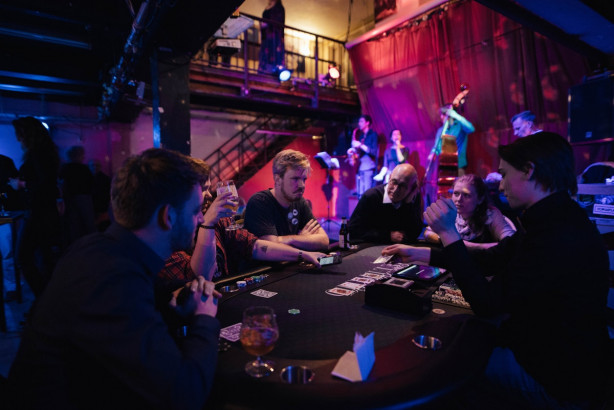
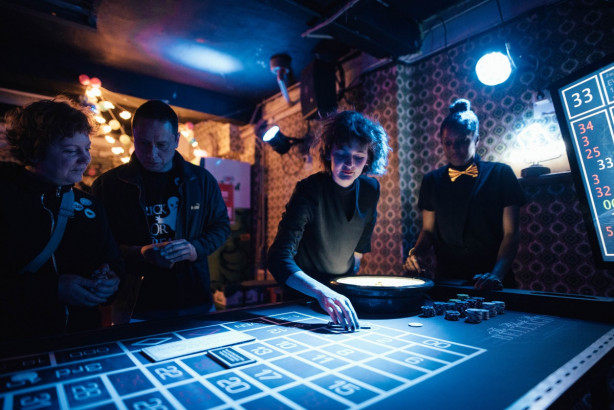
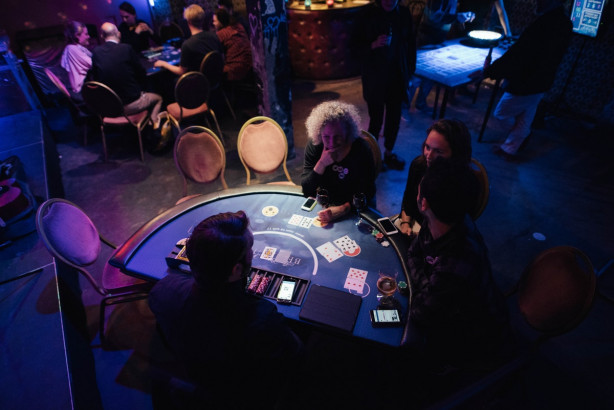
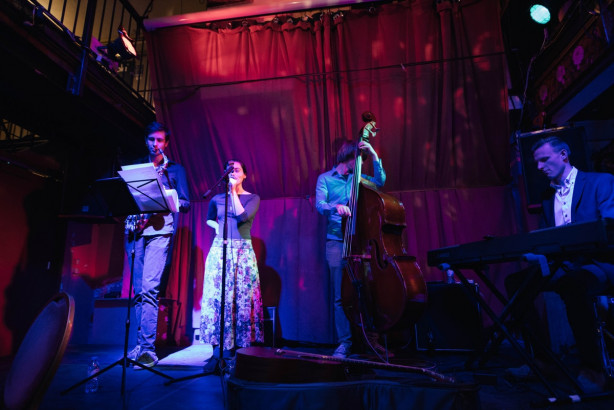
Pictures by Jimena Gauna for Waag
More picture and information: Click here
Stay up to date
Get notified about new updates, opportunities or events that match your interests.

